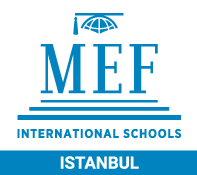In Kindergarten at MEF’s Early Childhood Centre, the ICT (Information and Communication Technology) curriculum introduces young learners to digital technology in an engaging, age-appropriate way. We focus on building confidence, curiosity, and responsible digital practices as students explore and interact with technology.
ICT Learning Structure and Key Outcomes
ICT lessons are divided between homeroom and computer lab sessions:
- Homeroom Lessons: Through unplugged activities and classroom iPad use, students explore technology basics in a familiar setting. Here, they engage in digital storytelling and experiment with simple game design elements, blending creativity with foundational digital skills.
- Computer Lab Sessions: In the lab, students practice essential skills like powering on a computer, logging in, using a mouse, and typing simple words. They also explore foundational coding concepts, learning sequencing through step-by-step instructions and developing problem-solving skills through basic game design tasks.
Key Learning Outcomes
- Basic Operations: Students learn to navigate and operate a computer independently.
- Mousing and Keyboarding: Activities focus on mouse use and early typing skills, reinforcing fine motor skills.
- Digital Navigation: Students explore simple software, icons, and menus to build familiarity with digital environments.
- Storytelling and Creativity: Students use digital tools to tell stories, combining creativity with digital literacy.
- Early Coding and Game Design: Coding tasks introduce sequencing and problem-solving, while basic game design activities encourage logical thinking and creativity.
- Digital Citizenship: Lessons introduce safe, respectful online behaviour, establishing a foundation for responsible digital engagement.
This program provides a comprehensive, developmentally appropriate introduction to technology, empowering Kindergarten students to explore the digital world through storytelling, creativity, coding, and game design.



